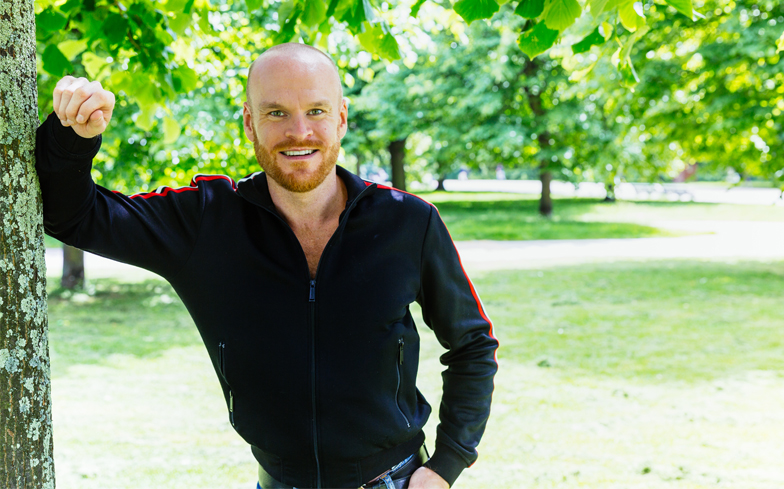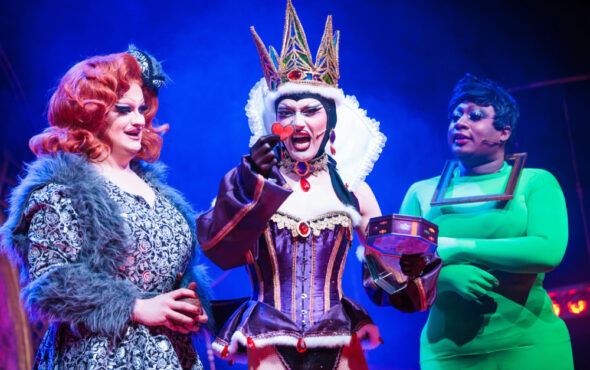
One of the aspects of my LGBTQ campaigning that I enjoy the most is my activity as a Stonewall Role Model.
This involves going into schools who have signed up to Stonewall’s School Champions Programme, which is open to all schools and provides access to Stonewall Role Models, as well as training and conferences where teachers can learn about the needs of LGBT students. When I speak to the students I mainly discuss my own coming out experiences and faith, as I am a passionate Christian.
Since becoming a Stonewall Role Model I have visited over 20 schools, including comprehensive, grammar, private, single-sex, mixed and faith schools, across the country. Each school, like every LGBTQ person, is different. I have visited schools where there was not a single out LGBTQ student. I have visited other schools, some with dedicated internal LGBTQ groups, where out LGBTQ couples in the GCSE year have told me that they have been open about their sexuality and relationships for several years. At two schools young men stood up just after I had finished my speech and then came out in front of the other hundred or so students in the room. I wish I had been this brave when I was younger.
About a month ago I visited a great school in London. It had been a difficult week for me, having started with food poisoning, then a filming commitment, writing deadlines, as well as a number of events which I was supposed to be attending. The evening before the visit I found a quiet corner in a restaurant and went over my speech. I arrived at the school early and was greeted by the teacher who had organised the visit. She showed me to the hall where I would be speaking and then the children filed in.
Perhaps it was the sunny weather or post-exam exhilaration, rather than the content of my speech, but the students reacted with several rounds of applause, as I told them about how I came out as gay, dealt with an HIV diagnosis and am an active member of several Church of England churches. They wanted to know how I reconcile my faith and my sexuality, what I found hardest about coming out and how HIV impacts my day-to-day life. I was pleased to answer their questions and it was one of those mornings where, afterwards, I felt I had really achieved something. It is reassuring that such inclusive learning environments exist.

Image: Philip Baldwin
Related: The UK has a responsibility to defend the rights of LGBTQ people in the Commonwealth
My own experiences at school could not have been more different. I was at secondary school from 1996 to 2003. I was bullied for being gay. By my mid-teens I had few friends. I was isolated and introverted. Major problems included teachers failing to intervene when my peers made homophobic remarks, poor Sex and Relationships Education which made no mention of LGBTQ people, a lack of LGBTQ role models as there were no out teachers, and a fear that complaining about the bullying was futile as it would mean outing myself and potentially lead to the bullying intensifying.
Nationally there has been progress in schools over the last decade. Stonewall’s School Report 2007 showed that 65% of lesbian, gay and bi pupils experienced bullying on account of their sexuality. By 2012 this had fallen to 55% and the 2017 report, which also reflected trans experiences, found that 45% of LGBTQ pupils are bullied.
Whilst there is a decline in LGBTQ bullying, as I mentioned earlier, the situation varies massively from school to school and nearly a half of LGBTQ students in Britain are still bullied on account of their sexuality. Sixty-four per cent of trans pupils are bullied for being LGBTQ. Nearly one in 10 trans pupils receive death threats. Like me, almost half of LGBTQ students never tell anyone about the bullying. Like me, 40% of LGBTQ pupils are never taught anything about LGBTQ issues in school. And, like me, 80% are never taught about safe sex in relation to same-sex relationships. Many LGBTQ students are still facing the same challenges that I did 15 years ago.
At my most recent visit I ended the speech by emphasising that every LGBTQ person is uniquely beautiful and special, but I hoped that by hearing about my life story the students had a greater understanding of LGBTQ identity. There is no room for complacency and schools are a facet of our society which is still lagging behind on LGBTQ inclusion.
If your school would like to find out more about Stonewall’s School Champions programme please click here.
Related: Young, LGBTQ and on the streets: Youth homelessness is a major issue in the UK



